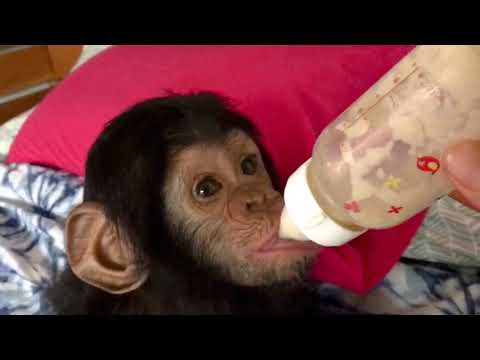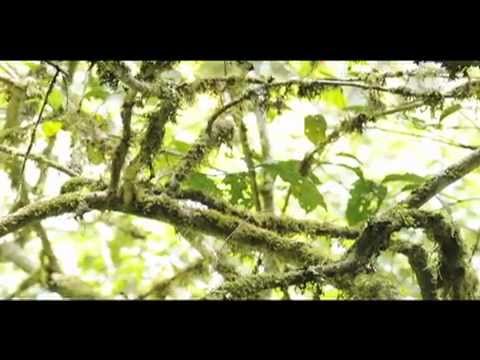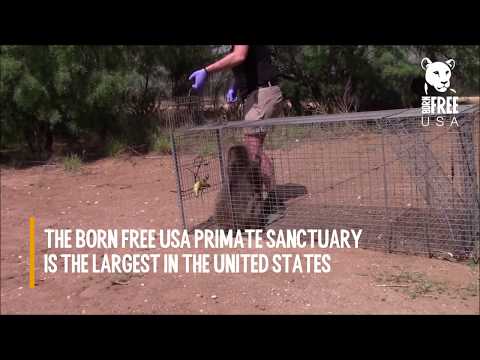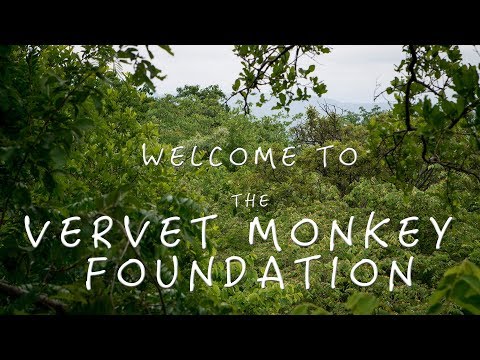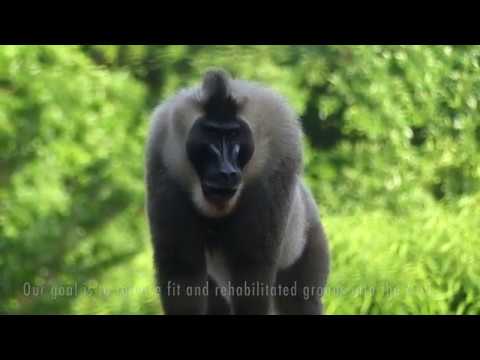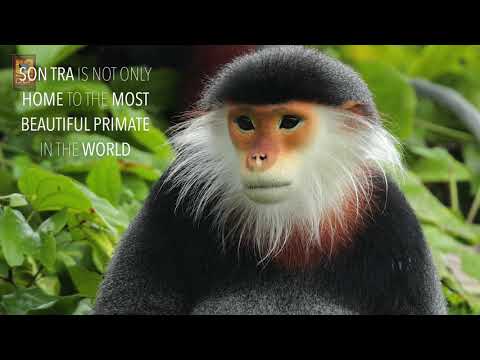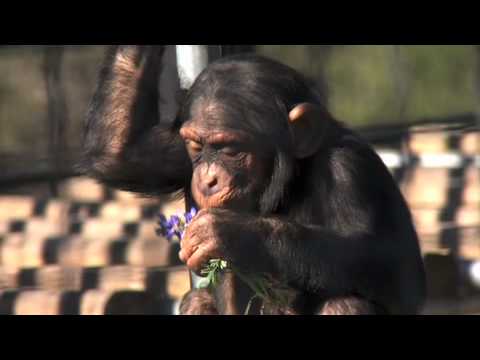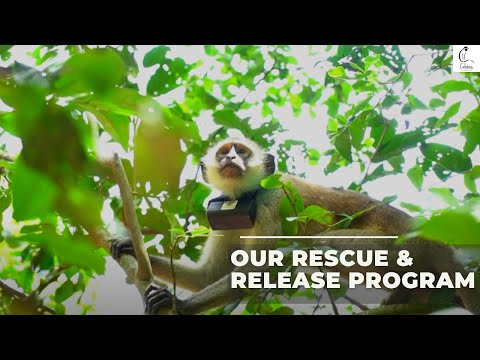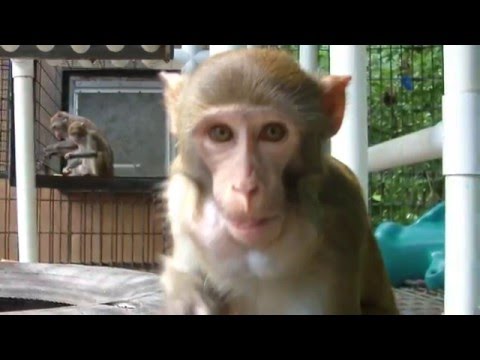9 Best Charities for Protecting Monkeys (Complete 2024 List)
Impactful Ninja is reader-supported. When you buy through links on our site, we may earn an affiliate commission.
Learn more
Learn more
.
Hey fellow impactful ninja ? You may have noticed that Impactful Ninja is all about providing helpful information to make a positive impact on the world and society. And that we love to link back to where we found all the information for each of our posts. Most of these links are informational-based for you to check out their primary sources with one click. But some of these links are so-called "affiliate links" to products that we recommend. First and foremost, because we believe that they add value to you. For example, when we wrote a post about the environmental impact of long showers, we came across an EPA recommendation to use WaterSense showerheads. So we linked to where you can find them. Or, for many of our posts, we also link to our favorite books on that topic so that you can get a much more holistic overview than one single blog post could provide. And when there is an affiliate program for these products, we sign up for it. For example, as Amazon Associates, we earn from qualifying purchases. First, and most importantly, we still only recommend products that we believe add value for you. When you buy something through one of our affiliate links, we may earn a small commission - but at no additional costs to you. And when you buy something through a link that is not an affiliate link, we won’t receive any commission but we’ll still be happy to have helped you. When we find products that we believe add value to you and the seller has an affiliate program, we sign up for it. When you buy something through one of our affiliate links, we may earn a small commission (at no extra costs to you). And at this point in time, all money is reinvested in sharing the most helpful content with you. This includes all operating costs for running this site and the content creation itself. You may have noticed by the way Impactful Ninja is operated that money is not the driving factor behind it. It is a passion project of mine and I love to share helpful information with you to make a positive impact on the world and society. However, it's a project in that I invest a lot of time and also quite some money. Eventually, my dream is to one day turn this passion project into my full-time job and provide even more helpful information. But that's still a long time to go. Stay impactful,Affiliate Disclosure
Why do we add these product links?
What do these affiliate links mean for you?
What do these affiliate links mean for us?
What does this mean for me personally?
![]()
There are 486 monkey species on our planet; 155 of them are classed as critically endangered or endangered, and 265 are threatened. In fact, experts believe that roughly 60% of all primate species alive today are at risk of going extinct in the next 25 years. Charities worldwide are now working hard to ensure these intelligent animals are able to survive and flourish. So we had to ask: What are the best charities for protecting monkeys?
The best charities for protecting monkeys are the Pan African Sanctuary Alliance and Neotropical Primate Conservation. Charities such as the Douc Langur Foundation and the Pandrillus Foundation do wonderful work protecting some of the most endangered monkey species in the world.
Whether you want to save monkeys from abusive captive animal trades, ensure their habitats are protected from further destruction, or simply make sure these fascinating animals are around for future generations to appreciate, there is a charity for you. Keep reading to learn more about what the best charities for protecting monkeys are all about, how they work, and what your best way would be to make a contribution.
Here’s What All the Best Charities for Protecting Monkeys Have in Common
The charities on this list were chosen based on their mission, impact and transparency ratings, and achievements.
They operate all over the world, from North America to Africa, protecting vulnerable monkeys and their habitats.
Many of the charities on this list focus their attention on rescuing vulnerable individuals from harmful industries such as the illegal wildlife trade. Others focus their attention on developing conservation management plans for the most endangered monkey species.
Yet they all share the same goal – to ensure all monkeys are given the care and respect they deserve.
These Are the 9 Best Charities for Protecting Monkeys in 2024
Below are our favorite charities for protecting monkeys (you can click on their link to directly jump to their section in this article):
Best Charities For Protecting Monkeys
(At the end of this article we’ll also share our six-step approach on how you can select the best charity to support.)
Pan African Sanctuary Alliance: Caring For Africa’s Primates

🔎
Their transparency & ratings:
The Pan African Sanctuary Alliance holds the Gold Seal of Transparency from GuideStar. The charity also has an 82% Encompass rating for finance & accountability from Charity Navigator.
“A future where Africa’s great apes and monkeys can once again flourish in the wild.”
Pan African Sanctuary Alliance
⚒️
What they do:
The Pan African Sanctuary Alliance unites 23 primate sanctuaries and wildlife centers with a global network of like-minded organizations and specialists to protect Africa’s primates. Their support includes emergency funding during crises and a wide range of conservation leadership and primate care programs to train the next generation of conservation experts. The charity also employs local anti-poaching patrols to combat the illegal bushmeat trade.
🚀
What they’ve achieved:
Today, the Pan African Sanctuary Alliance cares for over 3082 primates across 13 countries in Africa. In 2020, the charity rescued 239 primates from detrimental situations and released 162 back into the wild, including the first-ever release of a gorilla in Cameroon. In the same year, the charity raised over $330,000 in emergency funds to support their member sanctuaries through the Covid-19 pandemic.
✨
Ways to contribute:
You can donate directly to the Pan African Sanctuary Alliance through their website. You can also support the charity by becoming a Primate Protector or by signing their primates are not pets petition.
Neotropical Primate Conservation: Primates Protecting Primates

🔎
Their transparency & ratings:
According to their financial report, Neotropical Primate Conservation spent 85.3% of their income on conservation projects and 1% on governance fees.
“Ensuring long term habitat protection for flagship primate species and all other wildlife that share their habitats.”
Neotropical Primate Conservation
⚒️
What they do:
Neotropical Primate Conservation promotes the conservation of neotropical forest habitats in Central and South America by creating community-run reserves and safe wildlife corridors to protect the 178 native monkey species. In Argentina, the charity is also supporting the reintroduction of black and gold howler monkeys rescued from the illegal wildlife trade, as well as running reforestation projects in the Peruvian Andes.
🚀
What they’ve achieved:
Neotropical Primate Conservation now protects almost 500,000 hectares of forest in Peru, which is home to 16 primate species. In Columbia, the charity protects 800 hectares of the Venado Verde rainforest; home to numerous threatened primate species including the Columbian black spider monkey, the Panamanian night monkey, and the Baudo Guan.
✨
Ways to contribute:
You can donate directly to Neotropical Primate Conservation through their website. You can also support the charity by volunteering or by purchasing items from their online shop.
Born Free Foundation: Keeping Wildlife in the Wild
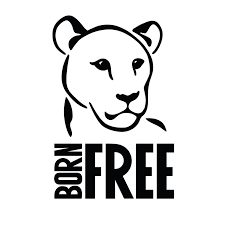
🔎
Their transparency & ratings:
The Born Free Foundation holds the Platinum Seal of Transparency from GuideStar as well as a 3-star rating from Charity Navigator.
“A co-existent future where humans no longer exploit wild animals.”
Born Free Foundation
⚒️
What they do:
The Born Free Foundation is dedicated to ending captive animal trades around the world. The charity has also set up one of America’s largest primate sanctuaries in South Texas, which provides refuge and care for monkeys rescued from the pet trade, research experimentation, and the entertainment industry. Through their Zambia Primate Project, Born Free rescues, rehabilitates, and releases orphaned or injured vervet monkeys in Zambia.
🚀
What they’ve achieved:
The Born Free Foundation currently cares for abused individuals from 11 different monkey species at their 175-acre primate sanctuary in Texas. Since 2002, the Zambia Primate Project has rescued and rehabilitated over 750 vervet monkeys and baboons, before releasing them into the Kafue National Park. The survival rate of the released troops averaged between 95 and 100% at the 12th-month mark, making it one of the most successful primate release projects in the world.
✨
Ways to contribute:
You can donate directly to the Born Free Foundation through their website. You can also support the charity by symbolically adopting a monkey from their primate sanctuary or by purchasing items from their wishlist.
Vervet Monkey Foundation: Changing the Fate of Vervet Monkeys in South Africa

🔎
Their transparency & ratings:
The Vervet Monkey Foundation holds the Silver Seal of Transparency from GuideStar. The charity has yet to be rated by Charity Navigator.
“We rehabilitate and provide sanctuary to orphaned, injured, abused, ex-laboratory, and unwanted primates.”
Vervet Monkey Foundation
⚒️
What they do:
The Vervet Monkey Foundation cares for and rehabilitates vulnerable vervet monkeys at their rehabilitation center in the Limpopo Province of South Africa. In addition, the charity teaches children and young adults about the importance of conserving primates, particularly vervet monkeys, through their multi-tiered education and outreach programs. Through their Vervet Forest Campaign, the charity is aiming to purchase 300-500 hectares of land in South Africa to release their troop of rehabilitated vervet monkeys.
🚀
What they’ve achieved:
To date, the Vervet Monkey Foundation has rescued and rehabilitated over 600 abused and injured vervet monkeys. The species has not been classified as vermin in South Africa since 2005, thanks to the charity’s campaigning efforts. In addition, the Vervet Monkey Foundation is the first ever PASA member charity in Africa to be awarded GFAS accreditation (Global Federation of Animal Sanctuaries).
✨
Ways to contribute:
You can donate directly to the Vervet Monkey Foundation through their website. You can also support the charity by virtually adopting a monkey or by fundraising.
Pandrillus Foundation: Saving the Vulnerable Drill Monkey
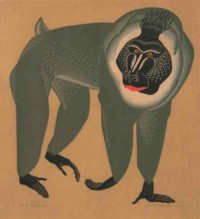
🔎
Their transparency & ratings:
The Pandrillus Foundation holds the Bronze Seal of Transparency from GuideStar. The charity has yet to be rated by Charity Navigator.
“The mission of Pandrillus encompasses all drills – those in captivity and the wild.”
Pandrillus Foundation
⚒️
What they do:
The Pandrillus Foundation works to protect the last remaining drill monkey populations in Nigeria and Cameroon through habitat preservation, research, advocacy, and captive breeding programs. In collaboration with the Government of Cameroon, the charity also set up the Limbe Wildlife Center which cares for many threatened primate species as well as other endangered wildlife rescued from the illegal wildlife trade.
🚀
What they’ve achieved:
Since their inception, the Pandrillus Foundation has rescued and rehabilitated over 75 drill monkeys in Cameroon and Nigeria. The charity’s Drill Rehabilitation & Breeding Center has recorded over 250 births to rehabilitated wild-born parents, making it the most successful breeding program for the species to date. The Limbe Wildlife Center now cares for 15 different primate species.
✨
Ways to contribute:
You can donate directly to the Pandrillus Foundation through their website. You can also donate directly to the Limbe Wildlife Center. Alternatively, you can volunteer at the Drill Rehabilitation & Breeding Center or the Limbe Wildlife Center.
Douc Langur Foundation: Protecting the Endangered Douc Langur Monkey

🔎
Their transparency & ratings:
The Douc Langur Foundation holds the Platinum Seal of Transparency from GuideStar. The charity also has an 86% Encompass rating for finance & accountability from Charity Navigator.
“To protect the Douc Langur and their wild habitat to ensure that they will survive in their home range for future generations.”
Douc Langur Foundation
⚒️
What they do:
The Douc Langur Foundation works with communities to protect local Douc Langur populations by removing snares and traps from forest habitats and rescuing individuals from illegal markets. The charity also invests in research projects to better understand the biology, diet, and behavior of the highly endangered douc langur monkey in Vietnam and Cambodia.
🚀
What they’ve achieved:
Since their founding, the Douc Langur Foundation has collected over 100,000 snares from local forests and removed more than 7 miles of fencing used to direct animals into traps. In a single 6-month period, the charity confiscated over 100 motorbikes of poachers and arrested 28 hunters. In addition, the charity has taught new conservation concepts to over 120 local students close to the Son Tra Nature Reserve for Douc Langur monkeys in Vietnam.
✨
Ways to contribute:
You can donate directly to the Douc Langur Foundation through their website. Alternatively, you keep up to date with the latest research and events from the charity by joining their Facebook or Instagram pages.
Primarily Primates: A Better Future For Abused Monkeys
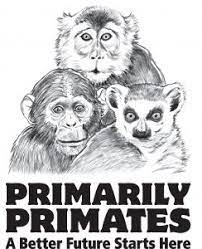
🔎
Their transparency & ratings:
According to their financial report, Primarily Primates spent 46.5% on animal care, 11.2% on public information, and 1% on fundraising.
“We are a non-profit sanctuary in Bexar County, Texas, that provides lifetime care for hundreds of animals, particularly primates.”
Primarily Primates
⚒️
What they do:
Primarily Primates care for and house homeless, abandoned, and abused chimps, monkeys, and lemurs at their sanctuary in San Antonio, Texas. Their staff support all aspects of care from providing primate residents with medical assistance and social-behavior management to offering daily enrichment activities. The primates are often rescued from harmful environments such as the exotic pet trade and research laboratories.
🚀
What they’ve achieved:
Primarily Primates currently look after 147 monkeys including 42 prosimians like lemurs, and 37 apes that have all been rescued from abusive captive environments. In 2019, the charity rescued 11 additional primates from a failed sanctuary in California. Prior to their rescue, the 3 chimps, 5 capuchins, 2 baboons, and 1 lemur lived in appallingly small cages at a research lab in New York.
✨
Ways to contribute:
You can donate directly to Primarily Primates through their website. You can also support the charity by sponsoring a monkey or by purchasing a t-shirt from their online gift shop.
Colobus Conservation: Conserving the Threatened Primates of Kenya
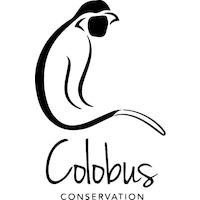
🔎
Their transparency & ratings:
According to their financial report, Colobus Conservation spent 61% of their expenditure on primate husbandry and conservation programs, and 20.6% on education and raising awareness.
“To promote the conservation, preservation and protection of primates, in particular the Angolan colobus monkey and its coastal forest habitat in Kenya.”
Colobus Conservation
⚒️
What they do:
Colobus Conservation supports and promotes forest conservation in Kenya (particularly Diani) to protect the remaining populations of the endangered Angolan black and white colobus monkey through reforestation projects and anti-poaching efforts. Through their education workshops and community support programs, the charity also promotes awareness of primate conservation in local schools and communities.
🚀
What they’ve achieved:
Since their founding, Colobus Conservation has remained dedicated to protecting vulnerable colobus monkeys in Kenya as well as other threatened primate species. In 2020, the charity responded to 203 primate welfare call-outs and trimmed a total of 400m of overgrown branches around electric fencing to prevent accidental deaths. Annually, over 1000 school children attend their colobus conservation education workshops to promote awareness of primate issues.
✨
Ways to contribute:
You can donate directly to Colobus Conservation through their website. You can also support the charity by symbolically adopting a monkey or by volunteering.
Primate Rescue Center: Providing Sanctuary For Abused Primates
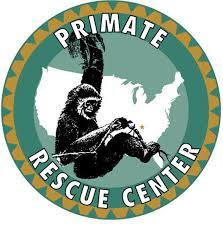
🔎
Their transparency & ratings:
The Primate Rescue Center holds the Platinum Seal of Transparency from GuideStar. The charity also has a 100% Encompass rating for finance & accountability from Charity Navigator.
“Alleviating the suffering of primates wherever it occurs.”
Primate Rescue Center
⚒️
What they do:
The Primate Rescue Center in Kentucky is working to end the primate trade by providing sanctuary to rescued primates. They also assist researchers and zoo personnel in finding suitable accommodation for surplus primates. In addition, the charity educates the public on the plight of primates trapped in the wildlife trade in America and abroad through their internship program and learning workshops.
🚀
What they’ve achieved:
The Primate Rescue Center currently cares for 8 chimpanzees and over 40 other primates in their state-of-the-art enclosures. Over the years, the charity has also provided funding, equipment, and consultancy support to other primate sanctuaries in 12 African Nations, Spain, Canada, and across America.
✨
Ways to contribute:
You can donate directly to the Primate Rescue Center through their website. You can also support the charity by adopting a primate at the sanctuary or by purchasing items from their online shop.
How Can You Select the Best Charities to Support?
The charities on the list are, we deem, the best charities for protecting monkeys. However, you may have a particular charity you want to support. Let’s look at what you can do to ensure your contribution has the most significant impact.
- Check out the charity website. Charities that are worthy of your donations are transparent in their mission and their figures. Familiarize yourself with their history, mission, and values. Their website usually is the best place to start.
- Identify the charity’s mission. Without a goal, the charity is likely to fail. If the charity’s mission isn’t clear, it’s probably worth looking for a charity that does have a clear mission.
- Check if the charity has measurable goals. An effective charity has clear goals. You want to know your donation will help the charity reach its goals. But if it doesn’t have targets, it’s likely to fail or squander your gift. The charity should be able to account for its spending and supply evidence of the work they do.
- Assess the successes or goals the charity has achieved. You wouldn’t invest in a business if it kept missing its targets. In the same way, charities are like this too. If no one is assessing a charity’s progress in reaching its targets, the chances are they’re not making a substantial positive change.
- Check the charity’s financials and stats. Trustworthy organizations will publish financial statements and reports each year. Some might be exempt from having to do so, but they should be able to provide them to public members who are interested in donating.
- Locate sources who work with or benefit from the charity. Word of mouth and first-hand experience of a charity’s work lets you know the charity’s quality. If you’re able to do so, check out the charity for yourself or speak to someone familiar with it. This way, your donation will go to the right place.
How Can You Best Support These Charities?
After you’ve made your decision, it’s time for you to decide on how you’d like to help the charities you’ve chosen. Check how you can help – each charity runs specific programs that have unique aims. Find out what the aim of such programs is and whether they are right for you.
Here are a few ways you can help your chosen charity:
- Donate money. You can find donation pages on the website of most charities. Your donation can be a one-time payment, or you can set it to be deducted regularly at different intervals. You can mostly pay via credit card, but some charities also take PayPal or Bitcoin payments.
- Buy their official merchandise. The charities can also raise money by selling merchandise. So, you can support them by buying the mugs, shirts, caps, pens, pencils, and any other such items they may be selling. Ideally, you should buy as much as you can to share and spread the word about the charity’s activities.
- Engage in volunteer work. As you’ve seen from our descriptions above, some charities engage in a lot of local and grassroots programs. You can help by taking on and organizing the program in your local area.
- Help their fundraising efforts. You can spread the word about the charity in your workplace, school, church, etc., and hold creative fundraising drives on social media or offline within your small circles.
- Share their stories. Most charities have compelling stories that you can share with your audience to attract more people to the cause.
Final Thoughts
Now it is up to you to select the charity that resonates most with you. And whichever charity you end up choosing and contributing to, we are sure that they will immensely appreciate your support. Hopefully, the information within this article has made this selection process a bit easier for you to support charities dedicated to protecting monkeys – based on the causes that matter most to you.
Stay impactful,

PS: Finally, I want to leave you with a thought-provoking TED talk from Dan Pallotta, a leading philanthropic activist and fundraiser, about what is wrong with the way we think about charities – and what we can do about it:
Sources
- IUCN/SSC Primate Specialist Group: An Assessment of Endangered Primates
- USA Today: Over half of the world’s apes and monkeys in danger of extinction
- Pan African Sanctuary Alliance: Home page
- Pan African Sanctuary Alliance: History of PASA
- GuideStar: Pan African Sanctuary Alliance
- Charity Navigator: Pan African Sanctuary Alliance
- Pan African Sanctuary Alliance: Discover the Sanctuaries
- Pan African Sanctuary Alliance: Emergency Response
- Pan African Sanctuary Alliance: Training Conservation Leaders
- Pan African Sanctuary Alliance: The Bushmeat Trade
- Pan African Sanctuary Alliance: 2020 Annual Report
- Pan African Sanctuary Alliance: Donate
- Pan African Sanctuary Alliance: Become a Primate Protector
- Pan African Sanctuary Alliance: Primates Are Not Pets
- Neotropical Primate Conservation: Home page
- Charity Commission for England and Wales: Neotropical Primate Conservation
- Neotropical Primate Conservation: About us
- Neotropical Primate Conservation: Wildlife trafficking in Argentina
- Neotropical Primate Conservation: Reforestation in the tropical Andes
- Neotropical Primate Conservation: Land Protection
- Neotropical Primate Conservation: Venado Verde
- Neotropical Primate Conservation: Donate
- Neotropical Primate Conservation: Get involved
- Neotropical Primate Conservation: Conservation T-shirts & More
- Born Free Foundation: Home page
- Born Free Foundation: About Us
- GuideStar: Born Free Foundation
- Charity Navigator: Born Free Foundation
- Born Free Foundation: Captive Animals
- Born Free Foundation: Primate Sanctuary
- Zambia Primate Project: Home page
- Zambia Primate Project: Rescue
- Zambia Primate Project: Release
- Born Free Foundation: Donate
- Born Free Foundation: Adopt a Monkey
- Born Free Foundation: Fund a Need at the Primate Sanctuary
- Vervet Monkey Foundation: Home page
- GuideStar: Vervet Monkey Foundation
- Vervet Monkey Foundation: Vervet Rehabilitation Program
- Vervet Monkey Foundation: Outreach and Education
- Vervet Monkey Foundation: The Vervet Forest
- Vervet Monkey Foundation: About Us
- Vervet Monkey Foundation: Donate
- Vervet Monkey Foundation: VMF Adoption site
- Vervet Monkey Foundation: Fundraising and VMF Stalls
- Pandrillus Foundation: Home page
- GuideStar: Pandrillus Foundation
- Pandrillus Foundation: Wildlife Advocacy & International Cooperation
- Pandrillus Foundation: The Drill Rehabilitation & Breeding Center
- Limbe Wildlife Center: Home page
- Limbe Wildlife Center: Primates
- Pandrillus Foundation: Donate
- Paypal: Donate to Pandrillus Foundation – Limbe Wildlife
- Pandrillus Foundation: Volunteering
- Douc Langur Foundation: Home page
- GuideStar: Douc Langur Foundation
- Charity Navigator: Douc Langur Foundation
- Douc Langur Foundation: What We Do
- Douc Langur Foundation: Where We Work
- Douc Langur Foundation: Donate
- Facebook: Douc Langur Foundation
- Instagram: Douc Langur Foundation
- Primarily Primates: Home page
- Primarily Primates: Financial Statements 2021 and 2020
- Primarily Primates: About Chimps
- Primarily Primates: About Monkeys
- Primarily Primates: About Lemurs
- Primarily Primates: About
- Primarily Primates: Inside the Exotic Pet Trade
- Primarily Primates: Non-Human Primates in Research
- Primarily Primates: Welcoming 11 new rescue animals
- Paypal: Donate to Primarily Primates
- Primarily Primates: Sponsor a Monkey
- Primarily Primates: T-shirts
- Colobus Conservation: Home page
- Colobus Conservation: 2020 Annual Report
- Colobus Conservation: Habitat Loss & Reforestation
- Colobus Conservation: Poaching
- Colobus Conservation: Education
- Colobus Conservation: Community
- Colobus Conservation: Donate
- Colobus Conservation: Adopt-a-Monkey
- Colobus Conservation: Volunteer With Us
- Primate Rescue Center: Home page
- Primate Rescue Center: Our Sanctuary
- GuideStar: Primate Rescue Center
- Charity Navigator: Primate Rescue Center
- Primate Rescue Center: The Issues
- Primate Rescue Center: Internships
- Primate Rescue Center: 2020 Annual Report
- Primate Rescue Center: Donate
- Primate Rescue Center: Primate Pals
- Primate Rescue Center: Shop
